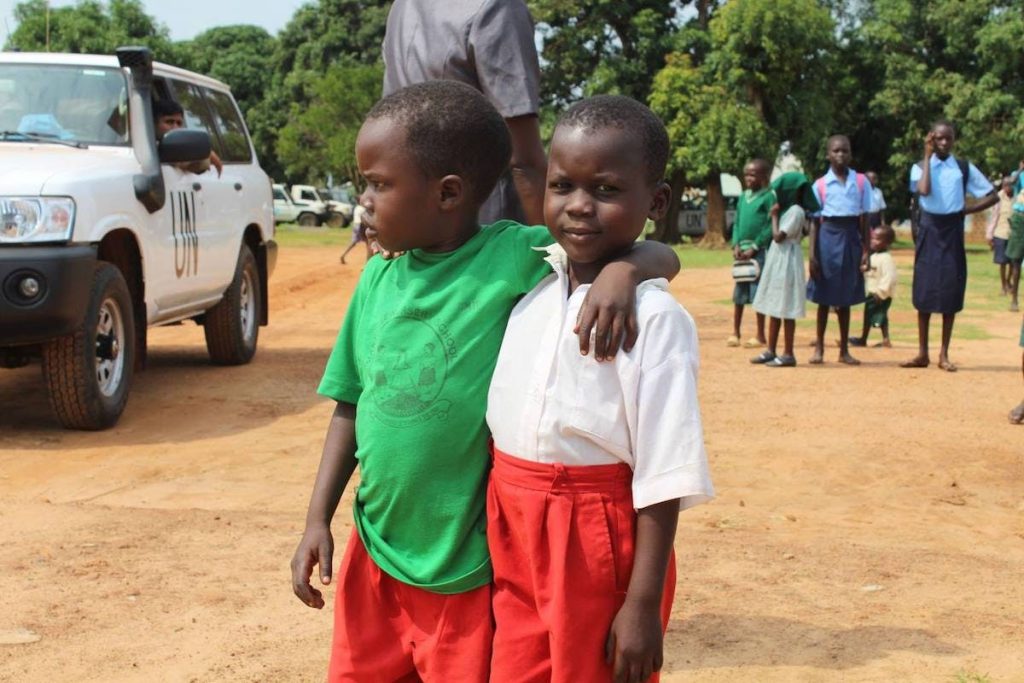In an important move, the United Nations Security Council recently authorized an arms embargo banning all countries from selling weapons to South Sudan until May 2019. This represents the best hope for the country to move toward peace since the civil war began.
The action taken by the Security Council – at the behest of the United States and U.S. Ambassador to the UN Nikki Haley – is a strong sign from the international community that South Sudan must work toward peace and the security of its citizens.
Approaching 5 Years of Conflict
The conflict goes back to December 2013, when South Sudan’s President Salva Kiir accused then Vice President Reik Machar of orchestrating a coup in Juba, which led to an outbreak of violence that has killed tens of thousands of civilians and uprooted millions from their homes.
The UN Office of Human Rights recently reported that government forces are using a “scorched-earth” policy, “killing and forcibly displacing people, burning their crops and homes, punishing and terrorizing them to ensure they never return.” UN agencies have been on the ground in South Sudan, working to aid people in desperate need of help.
In 2015, I visited South Sudan and witnessed this work firsthand. Due to the grave humanitarian situation that was unraveling, in an unprecedented move, the UN Peacekeeping mission (UNMISS), opened its doors to people fleeing violence and seeking a refuge. We met a mother who walked 80 miles to the UN Peacekeeping base. Her village had been raided and her husband killed, so she fled with her infant twins. One did not survive the journey.
Upon her arrival to the UN Peacekeeping base, the mission and UN agencies on the ground, including the UN Children’s Agency (UNICEF) and the International Organization for Migration (IOM), registered her and provided her with medical attention, food rations, and shelter. Today, UNMISS still hosts 200,000 civilians in five sites across the country dedicated to protecting civilians.
I’ve seen the lifesaving work of the UN Peacekeeping mission up close: providing a safe haven for the most vulnerable people; directing them to food, water, and basic medical care; reuniting families separated by of the violence; and even escorting women who have to travel lengths to gather firewood for cooking.
While the UN’s work is essential, ultimately, the people of South Sudan need their leaders to pursue peace. That’s why this arms embargo matters: It threatens President Kiir’s destructive military plans, potentially saves lives, and might eventually slow the mass migration of South Sudanese people fleeing violence at every turn.
U.S. Leadership at the UN to Address the Conflict
The United States played an important role in getting the Security Council to pass the arms embargo. Last year, Ambassador Nikki Haley visited the region and has continually urged the South Sudanese leaders to pursue peace. She pushed the U.S. to impose its own arms embargo that was put into place this February. Her continued persistence at the Security Council resulted in this historic UN arms embargo.
Ambassador Haley believes it will, “protect civilians and help stop the violence. For negotiations to work, we must end the cycle of broken promises to stick to a ceasefire. Peace in South Sudan will not come by letting the parties get their hands on more weapons.”
The U.S. has a special relationship with South Sudan, helping to conceive this new nation in 2011. It continues to be the country’s largest donor – providing $3.2 billion in relief to South Sudan since the 2013 conflict began, spanning three different administrations. South Sudan’s desire for self-rule and government evokes American ideals and values.
The arms embargo represents a glimmer of hope for the South Sudanese people – hope that the parties will end the violence and return to a political solution. The UN and the Security Council are standing with the people of South Sudan for peace. Now South Sudan’s leaders must do the same.

